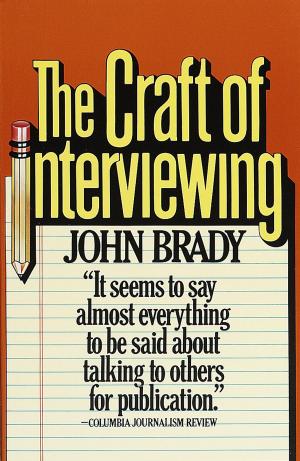The Harada Method
The Spirit of Self-reliance
Business & Finance, Human Resources & Personnel Management, Skills, Management & Leadership, Motivational, Entrepreneurship & Small Business| Author: | Norman Bodek, Takashi Harada | ISBN: | 1230002116150 |
| Publisher: | PCS Inc | Publication: | January 24, 2018 |
| Imprint: | Language: | English |
| Author: | Norman Bodek, Takashi Harada |
| ISBN: | 1230002116150 |
| Publisher: | PCS Inc |
| Publication: | January 24, 2018 |
| Imprint: | |
| Language: | English |
I would like to say I had the opportunity to listen to one of Norman Bodek's webinar 's and found it to be exactly what I have been looking for. As a result of that webinar, I purchased The Harada Method book. It is a perfect place to start in becoming Self-Reliant in the workplace and personally.
I have been in a number of industries through the years and a victim of down-sizing, right-sizing etc. implementing “Lean” and it always struck me that it was all about money no matter what your contribution was as an employee. I learned in my college days about "Social Responsibility" - that concept is totally foreign to Companies and Corporations today. I have also found that most organizations do not take the time to 'invest' in their employee's that in turn build strong employees, teamwork, higher and more effective productivity, creativity etc. Training is the last item to consider with most American companies. The various interviews in the book provide insight into the differences between American and Japanese management philosophies especially with respect to the individual. The concepts provided seem to be common-sense but are taken to another level in terms of discipline and execution (the method involving answering 33 questions for Self Reliance, setting Long Term Goals, using the Open Window 64 chart, setting up your Daily Diary, and setting up your Routine Check Sheet) and with the assistance of a trusted coach.
The book discusses the philosophy of Mr. Takashi Harada in relation to Taiichi Ohno (the Toyota Production System), Dr’s Shiegeo Shingo SMED / Poka Yoke), and Joji Akao (Hoshin Planning / QFD). The book compares American and Japanese Lean Manufacturing with interviews with Dr. Jeffrey Liker (The Toyota Way) discussing the relationship between the Toyota Production System success and developing employees.
One of the concepts that made an impression on me was the concept of becoming a Master; i.e. learning by watching in a master / apprentice relationship reverting to what was done in the past in America. The other item of interest was the Ohno Circle involving deep observation of processes to understand problems and identify waste. I also found it interesting about a comment: “Too often the idea of mastery is the if we understand the concept intellectually to the point where we can define it, we have mastered it…. if we understand something intellectually, we out to be able to do it. … there is no connection between what we understand intellectually and what we have the capacity to do.”
If you are interested in the Human Side of Lean and if you are looking for a place to start in becoming self-reliant as well as contributing to your work, to society, and to yourself and family; The Harada Method is the foundation for that rewarding journey. - written by an Amazon customer
I would like to say I had the opportunity to listen to one of Norman Bodek's webinar 's and found it to be exactly what I have been looking for. As a result of that webinar, I purchased The Harada Method book. It is a perfect place to start in becoming Self-Reliant in the workplace and personally.
I have been in a number of industries through the years and a victim of down-sizing, right-sizing etc. implementing “Lean” and it always struck me that it was all about money no matter what your contribution was as an employee. I learned in my college days about "Social Responsibility" - that concept is totally foreign to Companies and Corporations today. I have also found that most organizations do not take the time to 'invest' in their employee's that in turn build strong employees, teamwork, higher and more effective productivity, creativity etc. Training is the last item to consider with most American companies. The various interviews in the book provide insight into the differences between American and Japanese management philosophies especially with respect to the individual. The concepts provided seem to be common-sense but are taken to another level in terms of discipline and execution (the method involving answering 33 questions for Self Reliance, setting Long Term Goals, using the Open Window 64 chart, setting up your Daily Diary, and setting up your Routine Check Sheet) and with the assistance of a trusted coach.
The book discusses the philosophy of Mr. Takashi Harada in relation to Taiichi Ohno (the Toyota Production System), Dr’s Shiegeo Shingo SMED / Poka Yoke), and Joji Akao (Hoshin Planning / QFD). The book compares American and Japanese Lean Manufacturing with interviews with Dr. Jeffrey Liker (The Toyota Way) discussing the relationship between the Toyota Production System success and developing employees.
One of the concepts that made an impression on me was the concept of becoming a Master; i.e. learning by watching in a master / apprentice relationship reverting to what was done in the past in America. The other item of interest was the Ohno Circle involving deep observation of processes to understand problems and identify waste. I also found it interesting about a comment: “Too often the idea of mastery is the if we understand the concept intellectually to the point where we can define it, we have mastered it…. if we understand something intellectually, we out to be able to do it. … there is no connection between what we understand intellectually and what we have the capacity to do.”
If you are interested in the Human Side of Lean and if you are looking for a place to start in becoming self-reliant as well as contributing to your work, to society, and to yourself and family; The Harada Method is the foundation for that rewarding journey. - written by an Amazon customer















